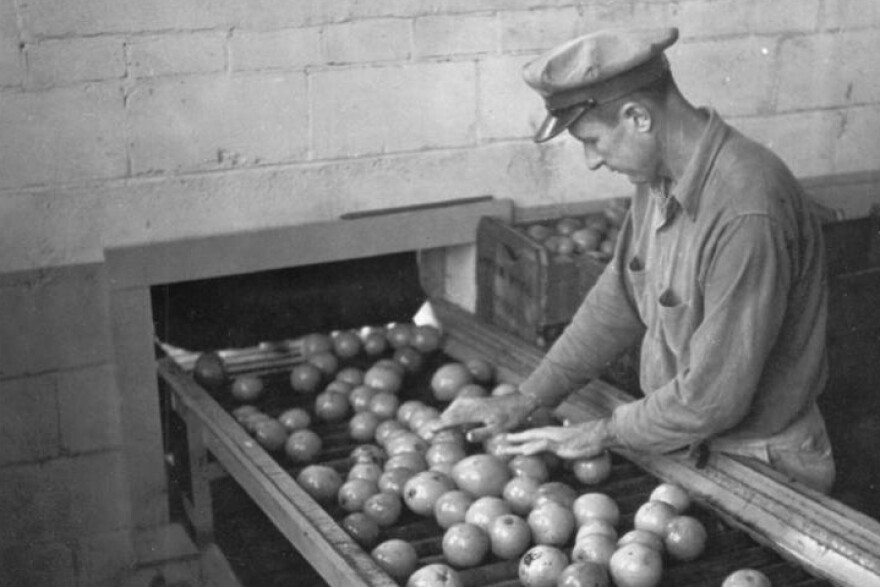An effort to prevent scurvy in U.S. troops led to the growth of the orange juice industry, popularizing what had been a relatively obscure beverage.
Florida's $8 billion citrus industry is moving into its prime harvest months of December and January, and supermarkets around the country will be flooded with Florida oranges, tangerines, and grapefruits. But few know that the citrus business owes much of its success to the U.S. military.
The frantic effort to feed the troops who fought overseas in World War II led to orange juice becoming an American breakfast staple. Of particular concern was the risk of scurvy, a severe vitamin C deficiency that can lead to can lead to anemia, bleeding, pain, swelling, sometimes death. It was a common malady throughout the history of warfare, especially among sailors who had little access to fruits and vegetables.
"The lack of vitamin C is a real thing, especially when you're in warfare and you might not be getting vitamin C in your regular old ration," said Matthew Eng, a historian who wrote an article on the Florida Citrus Commission for the U.S. Naval Historical Foundation.
Florida growers join the war effort

Determined to prevent the problem in World War II, the military looked for ways to get vitamin C to overseas troops. Fresh fruit wasn't a good option because of the challenges of shipping and spoilage. So the U.S. government launched a huge effort to increase the production of a Florida beverage that wasn't very popular at the time - canned orange juice.
Ben Hill Griffin III's family had several citrus groves in the town of Frostproof, Fla. and throughout the central part of the state. When the war broke out, the government came calling.
"We had fresh citrus that we would deliver to the government to be dispersed to the troops, and we also had canned orange juice and canned grapefruit juice," Griffin recalled. "I dare say that the quality at that time was not as good as what we put up today, but that was the matter of not having the refrigeration."
The military needed so much juice that Griffin and other growers expanded, planting an additional 100,000 acres in the 1940s.

Then came the challenge of processing all that fruit.
The federal government stepped up again. 10,000 German prisoners of war, who were being housed in Florida POW camps, were put to work building a huge plant with the citrus growers' cooperative. That 65-acre plant, Citrus World, in Lake Wales, Fla. still produces orange juice today.
"A lot of the infrastructure that's here ... was actually constructed by German prisoners of war," said Chip Hendry, the CFO at Citrus World Inc., the parent company of the cooperative now known as Florida's Natural. "I imagine these fellas were glad just to have something to do."
Florida Outshines California
During the war, Florida surpassed California in orange production.
But the state's real windfall came just as World War II ended. The Florida Citrus Commission and the U.S. Department of Agriculture quietly worked together during the war to develop a better way to preserve orange juice. Their discovery was frozen concentrate orange juice, which tasted better than canned juice.

The discovery didn't happen in time to be shipped to the troops, but Florida's Natural CEO Bob Behr said frozen OJ became a big hit when those veterans returned from the war and started families.
"We were largely a grapefruit industry prior to the 1940s," Behr said. "It was the emergence of orange juice during the war effort and then following that with frozen concentrate that really put orange juice on the map here in this country."
"Before long, it was on everybody's breakfast table," Behr said.
This story was produced by the American Homefront Project, a public media collaboration that reports on American military life and veterans. Funding comes from the Corporation for Public Broadcasting.




